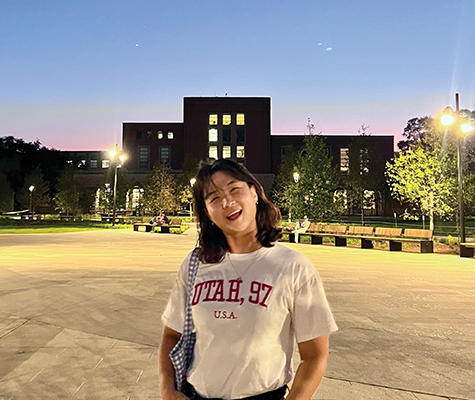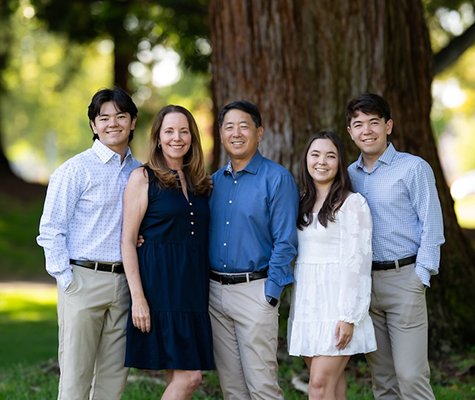Envisioning Student Wellbeing
A conversation with Agnes Ho, director of Rice’s Student Wellbeing Office
Agnes Ho is a licensed clinical social worker and director of Rice’s Student Wellbeing Office. In her 11 years at Rice, she has worked diligently to foster the wellbeing of students, connect them with resources and educate the Rice community on ways to capitalize on healthy habits and mindsets.
What are the top issues that cause students to seek support?
There is no question that COVID-19 affected students’ well-being and health at Rice, underscoring the need for coping strategies, resilience-building and other services. However, the demand for mental health services has been increasing significantly since the mid-2000s, not just at Rice but also nationally. We see a lot of academic stress, especially imposter syndrome. Students come to us for help with anxiety management, sleep hygiene and financial worries. This all translates into an ever-growing request for more access to counseling and psychiatric services on or close to campus. Rice has steadily expanded its mental health staff, including wellbeing advisors, an outreach worker who works nights and weekends, a behavior specialist and licensed professional counselors, and we are continuing to grow to meet this demand.
What role does the Student Wellbeing Office and the Rice Counseling Center play on campus?
The two offices work in tandem throughout the year. The Student Wellbeing Office focuses on training, programming and outreach that contribute to the total mental health of our student community. Each semester, the office sees approximately 350 students for a variety of reasons, including many who are dealing with stress. The Student Wellbeing Office is a great place to start. But when stress surpasses normal worries and turns into distress, when students don’t feel like themselves and it begins to impact the way they function in daily life, we might recommend they go to the Counseling Center for an evaluation. Regardless, visiting with either office is a good step, and we make it easy. We are in the same building and share the same phone number so that we can guide students to exactly what they need.
What are some examples of strategies that foster wellness on campus?
Much of our work is preventative — giving students tools that contribute to their overall wellbeing. We provide psychoeducational resources and practical skills through workshops and one-on-one sessions with students. We host classes on suicide prevention, time management, financial stress, budgeting and more. We also oversee and run the Rice Health Advisors program, which trains around 30 student peer advisors per semester on a variety of topics ranging from proper nutrition and physical health to how to address students who report feeling suicidal or experiencing interpersonal violence. These students work in the residential colleges and serve as a conduit of support connecting students to the Student Wellbeing Office.
Much of our mental health education efforts are fun, too! For example, we regularly hold study breaks, including with therapy dogs, and we collaborate with the Betty and Jacob Friedman Holistic Garden located near our office to get students outside and into nature.
What does your office need to further your work in encouraging a culture of wellbeing?
Our top priorities are expanding staffing and space. This includes adding therapists and psychiatrists at the Rice Counseling Center and hiring additional wellbeing advisors in our office — all to strengthen the ability to care for students. To accommodate our staff in a central location we need to build out a more comprehensive space for wellness care and programming within the Barbara and David Gibbs Recreation and Wellness Center.
We are also committed to mitigating mental health disparities. We all know that mental health struggles don’t discriminate, and students experience a wide variety of expenses related to accessing medical care on and off campus. This ranges from copays for doctor visits and filling prescription medications, to support for transportation costs for family who unexpectedly may need to travel to Rice to support a student in distress. We would love to establish a coordinated care accessibility fund to provide for these ongoing needs.
Finally, I would love to devote resources to substance use prevention. Our peer institutions have very strong recovery communities and entire office dedicated to supporting students who struggle with alcohol and other substance use and those in recovery. I think more preventative work in this area is needed.
Accelerate the Vision
Mental health remains one of Rice’s top priorities, and we are committed to providing students with the resources they need to be successful inside and outside the classroom. Join us in supporting wellbeing initiatives at Rice, which ensure our Owls can pursue their passions and enjoy an unrivaled student experience on campus. For more information on how you can support this critical initiative, contact Sara L. Rice at 713-348-3189 or sdl@rice.edu.






